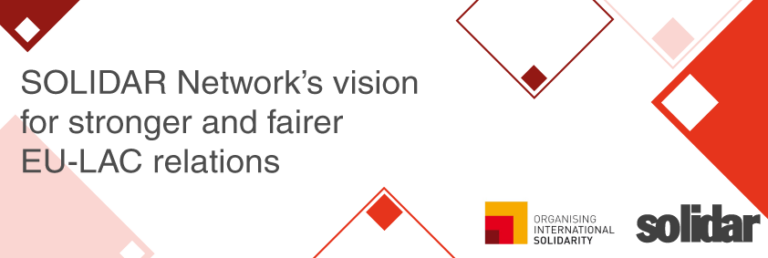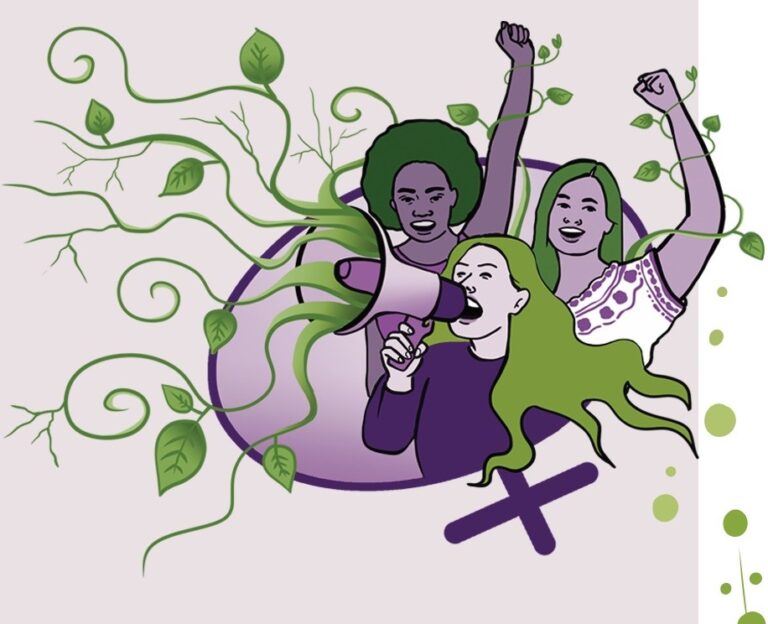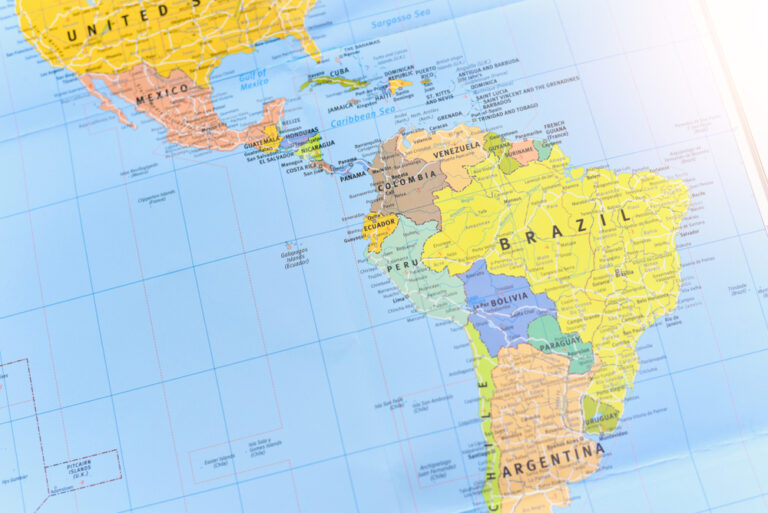European Union and Latin America: Towards a Just Transition focused Partnership
On July 7th, the European External Action Service (EEAS) and the European Commission issued a Joint Communication to the European Parliament and the Council “A New Agenda for Relations between the EU and Latin America and the Caribbean”.
The New Agenda focuses on 6 main areas to enhance the cooperation between the two regions: 1) A renewed political partnership; 2) Strengthening a common EU-LAC trade agenda; 3) Global Gateway and supporting partnerships for a fair green and digital transition and promoting sustainable economic growth for human development; 4) Joining forces for justice, citizen security and the fight against transnational organised crime; 5) Working together to promote peace and security, democracy, rule of law, human rights and humanitarian aid; 6) Building a vibrant EU-LAC people-to-people partnership.
Ahead of the EU CELAC Summit that will take place on 17th and 18th July in Brussels, SOLIDAR, together with its members in Latin America and the Caribbean, has developed its own narrative and priorities:
- The promotion of civic space and freedom of association;
- A just, feminist and democratic transition;
- Decent work and the respect for international labour standards.
1. The promotion of civic space and freedom of association
The EU is committed to promoting and protecting civic space in the European Union and Latin America and the Caribbean (EU-LAC) as part of its broader efforts to support human rights, democracy and the rule of law. In addition, the 2017 EU Council Conclusions on Engagement with Civil Society in External Relations underlines the importance of CSOs in driving government accountability and transparency and in delivering on the Sustainable Development Goals (SDGs).
The SOLIDAR network requests that, in line with these commitments and the EU Action Plan for Human Rights and Democracy 2020-2024 , the future EU-LAC partnership should be based on the reinforcement of democratic systems, respect for and strengthening of civic space, respect for human rights and the protection of human rights defenders.
2. A just, feminist and democratic transition
The EU is committed to promoting a fair green and digital transition in both Europe and Latin America and the Caribbean. A green transition in the region is crucial for socio-economic development, as well as for achieving regional and global climate goals.
SOLIDAR network identifies the need for this transition to be just and at the service of the populations, with particular attention to the most vulnerable groups. The partnership between the EU and LAC must achieve a neutral climate model that leaves no one behind, listening to the needs of local populations. In this sense, a transition to a low-carbon economy has to be feminist and at the service of people. This requires policies that favour renewable energy and emissions mitigation, while generating alternative economic activities and quality jobs for the millions of workers in the sectors where jobs would be at risk.
3. Decent work and universal social protection
During the period 2021-2027, the EU is committed to supporting “the long-term recovery of the region from the COVID-19 health emergency. It will seek to support sustainable and inclusive economic recovery, strengthening democratic governance, human rights, peace and security, while addressing the region’s deep-rooted inequality and advancing social cohesion and human development”.
The SOLIDAR network works to ensure that recovery is based on the creation of decent work, promotes the care economy and co-responsibility, strengthens universal social protection systems and invests in quality and inclusive essential public services, taking into account the needs of the populations most at risk of exclusion.
In view of the EU-CELAC Summit taking place in Brussel the 17th and 18th of July, SOLIDAR together with its member and within the broader scope of the UE-LAC Group, of which it is a part along with numerous other CSOs, asks the new EU-LAC partnership to ensure that enabling civil society space for civil society and independent and democratic trade unions is made a real priority and demands for the setting up of a multistakeholder mechanism to monitoring on the implementation of the new partnership that will be agreed at the Summit in July.





